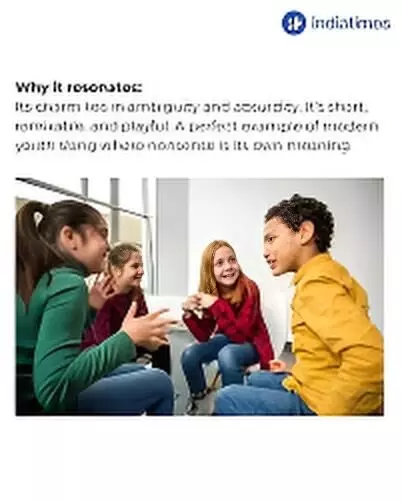Six-Seven and the Rise of Nonsense Slang: Why Gen Z’s Viral Phrases Still Make Perfect Sense
The phrase “six-seven” has gone viral — but what does it actually mean? Linguists say it’s less about logic and more about identity, connection, and youth culture.
‘Six-Seven’: What Gen Z’s Viral Slang Really Means — and Why Adults Don’t Get It

A strange linguistic wave is sweeping across America — one that has parents puzzled, teachers frustrated, and young people laughing. The latest phrase at the center of it all? “Six-seven.”
You’ve probably seen it across TikTok or heard it from teens, but here’s the twist: it doesn’t actually mean anything.
🎵 The Origins of “Six-Seven”
The term reportedly stems from a track by Philadelphia rapper Skrilla, possibly referencing 67th Street. It gained more traction in videos featuring NBA star LaMelo Ball (6ft 7in) and 17-year-old basketball sensation Taylen Kinney, who casually used it while rating a Starbucks drink — sparking a viral trend.
Now, “six-seven” has joined the ranks of internet expressions like “skibidi” or “What the sigma?”, words that sound nonsensical but thrive as in-jokes among the youth.
🧠 More Than “Brain Rot”: The Psychology Behind Slang
So why do teens use words that don’t make sense?
Experts say it’s not about meaning — it’s about identity.
“This is just human development,” explains Dr. Nicole Holliday, linguistics professor at UC Berkeley. “Part of growing up is creating language that separates young people from older generations.”
Similarly, Dr. Daria Bahtina of UCLA notes that slang isn’t just for communication — it’s a way to build relationships and signal belonging. “Phrases like ‘six-seven’ or ‘skibidi’ are fun precisely because they’re exclusive,” she says. “The joy lies in getting it.”
🔁 The Cycle of Slang — From “1738” to “Cringe”
This isn’t the first time slang has baffled older generations.
In 1905, people were yelling “23 skidoo!” — a flexible phrase that could mean “let’s go” or even be used for catcalling.
A century later, millennials were shouting “1738!” thanks to Fetty Wap’s 2014 hit Trap Queen. Few knew it referenced a cognac brand — it was just a vibe.
Regional slang also carries this identity marker: in Memphis, “mane” can mean anything, while in Philadelphia, “jawn” stands for any person, place, or thing — but mostly, it says I’m from here.
⚡ Slang in the Social Media Era
What’s new today is how fast slang spreads — and dies.
Before social media, slang stayed within youth circles. Now, TikTok and Twitter make it instantly visible to adults, who start demanding definitions. And when parents and journalists explain it, the phrase quickly becomes “cringe.”
“They have to keep outrunning us old people,” Holliday jokes.
That speed of evolution can even overwhelm teens themselves — if you can’t keep up, you risk feeling left out.
💬 A Shared Laugh in a Digital World
Despite the chaos, slang can bridge generations too. Holliday recalls running a marathon and seeing a group of kids holding a sign at the 6.7-mile mark. “When I yelled ‘six-seven,’ they screamed back,” she says. “For a moment, in our algorithm-driven world, we connected.”
Maybe that’s the point: even meaningless words can mean everything when they make people feel like they belong.

